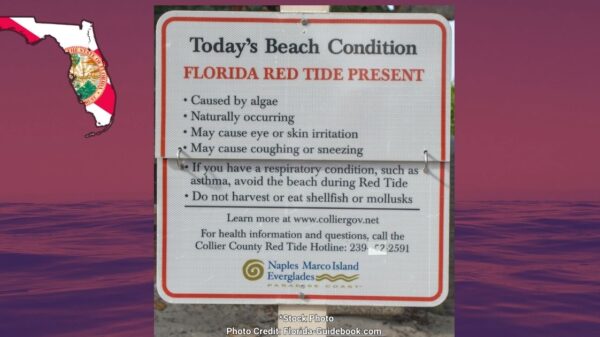The National Oceanic and Atmospheric Administration’s (NOAA) Coral Reef Conservation Program announced last week that it has awarded almost $21.4 million for coral reef management, including $8.5 million to help those off the coast of Florida.
“Healthy coral reefs provide billions of dollars in food, jobs, recreational opportunities, coastal protection, and other important goods and services to people around the world. A U.S. Geological Survey study determined that U.S. coral reefs annually provide flood protection to over 18,000 Americans and $1.8 billion worth of coastal infrastructure. The NOAA Coral Reef Conservation Program is leading efforts to study and conserve these precious resources for current and future generations,” the NOAA noted. “All of the awarded projects support research to address impacts from the three primary threats to coral reefs: global environmental change, land-based sources of pollution, and unsustainable fishing practices. Additionally, the awards fund direct intervention strategies, such as coral reef restoration. As the world focuses the next decade on ecosystem restoration and ocean science for sustainable development, NOAA will continue to fund, research, and conduct the latest coral restoration techniques to maintain viable coral reef ecosystems.”
The Florida Department of Environmental Protection will get $743,958 from the feds and the same amount in matching funds. The Gulf of Mexico Fishery Management Council is getting $150,420 from the NOAA. The South Atlantic Fishery Management Council will receive $357,668 while the Nature Conservancy will get $750,000 from the NOAA and $662,910 in matching funds for operations in Florida and across the globe. SECORE will get $57,950 in NOAA funds and $57,984 in matching funds. The National Marine Sanctuary Foundation will get $46,889 in federal funds while NOAA is sending $40,643 to the Florida Fish and Wildlife Commission. The National Marine Sanctuary Foundation will get more than $1.6 million from the NOAA for its efforts in Florida waters. The Florida Aquarium will get $289,903 from the NOAA and $153,628 in matching funds. The Coral Restoration Foundation, Inc. will get $500,000 from the NOAA and almost $466,000 in matching funds.
Schools based in Florida and those operating in Florida waters are also getting funds. Pennsylvania State University will get $169,884 in federal funds for operations off Florida and the Virgin Islands. Florida International University will receive $250,000 in NOAA funds and $190,999 in matching funds. The University of Southern California will get $225,673 from the NOAA and $225,848 for its efforts to help coral reefs off the coast of Florida. North Carolina State University will get $59,000 from NOAA for its operations off the Florida coast. The University of Florida will get $202,000 for its coral reef operations. The University of Miami will get more than $3.6 million from the NOAA, including funds for its Cooperative Institute for Marine and Atmospheric Studies (CIMAS).
Last week, U.S. Sen. Marco Rubio, R-Fla., weighed in on the NOAA funds headed to Florida.
“Protecting Florida’s coral reefs is common sense,” Rubio said. “Not only do the reefs help protect our vulnerable coastlines from storm surges, but they are home to an incredibly diverse marine ecosystem. The State of Florida, in partnership with universities and other local non-governmental organizations, is leading the way on reef restoration, and federal funding is a key source of support.
“We must empower our non-federal partners by providing them the tools and resources they need to continue to be effective partners,” Rubio continued. “My bipartisan Restoring Resilient Reefs Act would do exactly that by ensuring that federal agencies are partnering effectively with state, local, and non-governmental organizations who are on the cutting edge of efforts to restore our coral reefs. It is time for this bill to become law so that we can finally turn the tide of coral loss and save our treasured coral reefs.”
In recent years, Rubio has been focused on restoring coral reefs. Last year, Rubio was able to get his bill updating and reauthorizing the “Coral Reef Conservation Act,” which expired 15 years ago, through the U.S. Senate in December 2020 but it was too late to clear the U.S. House.
Back in the summer of 2019, Rubio, U.S. Sen. Rick Scott, R-Fla., and U.S. Rep. Darren Soto, D-Fla., joined with U.S. Sen. Brian Schatz, D-Hi., U.S. Sen. Mazi Hirono, D-Hi., and U.S. Jenniffer González-Colón, R-PR. to bring out the “Restoring Resilient Reefs Act” to reauthorize the old law. Other backers include U.S. Rep. Charlie Crist, D-Fla., U.S. Rep. Brian Mast, R-Fla., U.S. Rep. Stephanie Murphy, D-Fla., and then U.S. Rep. Tulsi Gabbard, D-Hi.
Rubio is the chief sponsor in the Senate while Soto introduced it in the House. They brought the bill back at the start of this year.
“The Restoring Resilient Reefs Act authorizes five years of directed federal funding and technical assistance to states for the restoration and management of coral reef ecosystems, encourages innovative new Coral Reef Stewardship Partnerships among resource management agencies, research centers, and community stakeholders, and codifies and updates the U.S. Coral Reef Task Force,” Rubio’s office noted.



















